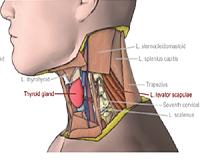 |
Madison WI (SPX) Aug 02, 2010 During the Spring and Fall migratory seasons, sparrows become significantly less capable of resisting temptation. Researchers writing in the open access journal BMC Neuroscience investigated impulse control and sleep in White-crowned Sparrows during migratory and non-migratory seasons. During migratory periods, the birds slept very little and became more impulsive, but sleep loss itself was not entirely to blame for their impulsivity. University of Wisconsin-Madison researchers studied the effects of migratory status and sleep deprivation on the ability of a group of sparrows to master the urge to peck at a food-giving button. According to study director Ruth Benca, "In the wild, despite marked reductions in apparent opportunity to sleep, birds continue to successfully engage in prolonged flight, complex navigation and predator evasion during migration. In the laboratory, we've previously found that birds in the migratory state can learn to peck at a switch for food as well as birds during non-migratory periods. In contrast, in this study we demonstrate that, relative to birds in the non-migratory state, they struggle to learn when not to peck". This apparent hyperactivity during the migratory period may be linked to the fact that the migrating birds' sleep periods become divorced from the light/dark cycle they follow during the non-migratory seasons of Summer and Winter; separate experiments showed that sleep deprivation alone does not cause this loss of control. Short sleep duration in the summer is also not associated with increased impulsivity. According to Benca, "It is conceivable that the temporal fragmentation of migratory sleep plays a role in the migration-specific loss of behavioral inhibition. Whether the inability to inhibit pecking is related to a general failure of inhibition, a distorted sense of time, inattention to salient cues, or some other underlying mechanism is not entirely clear".
Share This Article With Planet Earth
Related Links University of Wisconsin-Madison Darwin Today At TerraDaily.com
 Scientists Unravel Another Key Evolutionary Trait
Scientists Unravel Another Key Evolutionary TraitIthaca NY (SPX) Jul 30, 2010 By deciphering the genetics in humans and fish, scientists now believe that the neck - that little body part between your head and shoulders - gave humans so much freedom of movement that it played a surprising and major role in the evolution of the human brain, according to New York University and Cornell University neuroscientists in the online journal Nature Communications (July 27, 2010.) ... read more |
|
| The content herein, unless otherwise known to be public domain, are Copyright 1995-2010 - SpaceDaily. AFP and UPI Wire Stories are copyright Agence France-Presse and United Press International. ESA Portal Reports are copyright European Space Agency. All NASA sourced material is public domain. Additional copyrights may apply in whole or part to other bona fide parties. Advertising does not imply endorsement,agreement or approval of any opinions, statements or information provided by SpaceDaily on any Web page published or hosted by SpaceDaily. Privacy Statement |